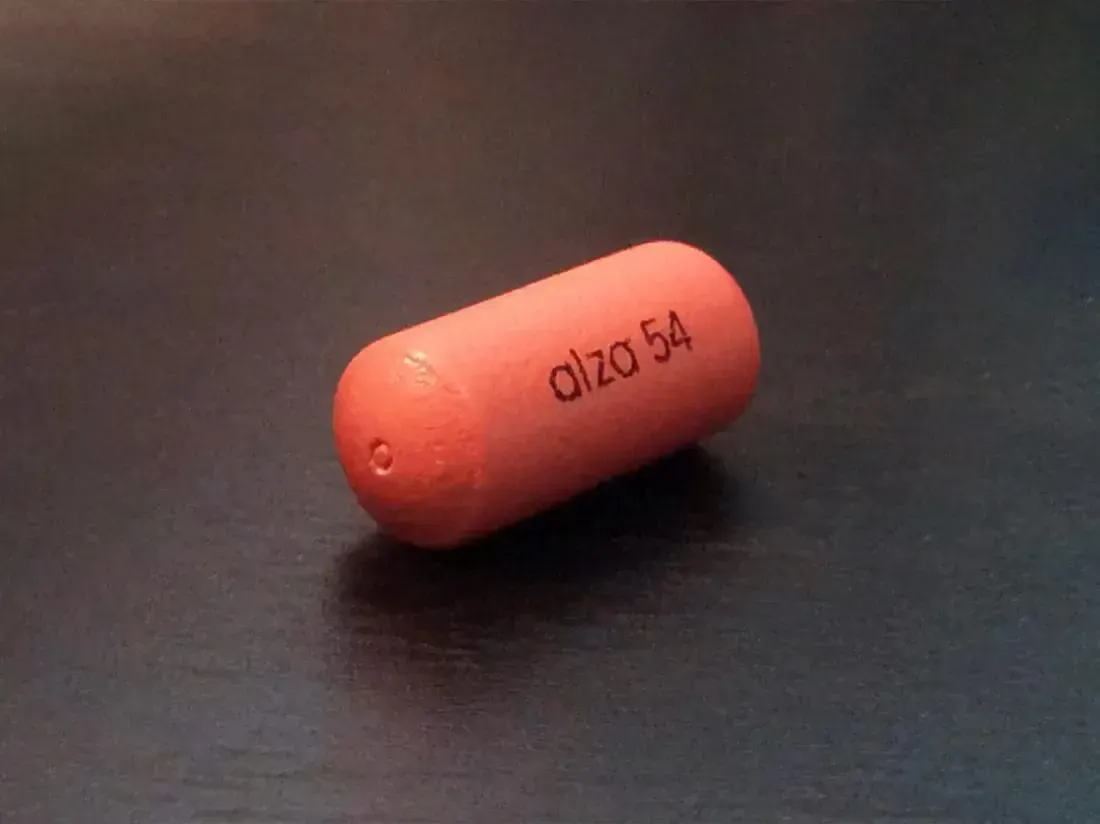
ADHD medication for adults treatment: Personal insights
You can watch a shorter video on me talking about this here
Talking about ADHD medication is tricky. Not because I don’t have anything to say, but because it’s never a neat story. Every ADHD brain is different. What works wonders for one person can cause serious side effects for another.
This is my personal journey. I’ve only been on two ADHD medicines—Elvanse with a Dexamphetamine (Amfexa) top-up, and more recently Concerta. My change happened just two months ago, and I want to share why I switched, what I learned the hard way, and how my daughter’s treatment gave me the biggest wakeup call.

Before medication: a daily uphill climb
Before medication treatment, my life looked very different depending on where you were standing.
From the outside, I looked like a high-flying, high-performing rock star. I was climbing the corporate ladder, hitting targets, always “on” at work. People saw the clothes, the confidence, the achievements. They thought I had it all together.
But behind that polished exterior was a very different story. My symptoms of ADHD were constant. Impulsive behaviours, poor time management, unfinished projects, burnout cycles—it was chaos that no one else saw.
And to keep up the performance, I leaned heavily on alcohol. It was my way of winding down, numbing the anxiety, and pretending I was coping. The truth is, it wasn’t coping at all. It was survival.
My family members felt the fallout most. They saw the missed bills, the forgetfulness, the emotional dysregulation. Even basic everyday life tasks felt impossible at times. I’d build organisational skills systems and set alarms, but they collapsed as quickly as I built them.
ADHD diagnosis gave me a label for all this, but it didn’t solve the reality. That’s when I realised behavioural therapy and willpower alone weren’t enough. I needed a different kind of help. That’s when I turned to my psychiatrist and started talking about ADHD treatment options.

Starting Elvanse: the good years
Elvanse was the first medicine I tried. In the UK it’s one of the most commonly prescribed ADHD medicines for adults and usually considered a first line of treatment.
And at first, it worked wonders. The calming effect was immediate. I first realised it was working when I caught myself folding socks without a second thought. My heart rate felt steady, my mind slowed down enough to focus, and I could actually complete tasks without 15 detours.
On Elvanse, I could function. I could organise myself, manage behaviour, and even tackle some of the impulsive behaviours that used to wreck my adult life. The Dexamphetamine top-up (Amfexa) gave me an extra push in the late afternoon when my productivity dipped.
Of course, there were possible side effects. I had some sleep problems, dry mouth, headaches, and the odd upset stomach. But the biggest change was that I no longer needed alcohol to get through the day. I dropped 20 kilos without even trying.
I thought I’d cracked it. I even joked about how my kitchen surfaces were suddenly spotless because I’d hyperfocused on cleaning instead of eating lunch.
For over two years, I lived with Elvanse as my anchor.

When more medicine backfires
Then came my big mistake.
At one point, I decided to increase my Elvanse dose. My thinking was simple: if a low dose was good, then a higher dose must be better. More productivity. More control. Maybe even less anxiety.
Instead, it pushed me into overdrive.
My ADHD symptoms didn’t just return—they exploded. My impulsive behaviours became unmanageable. My emotional regulation collapsed. I was volatile, exhausted, and spiralling.
It wasn’t just me who suffered. My family members had to watch me unravel. My partner, parents and kids saw the crash, and it was brutal for them. That period was one of the toughest times for us as a family. They didn’t just see the symptoms of ADHD—they saw me crash and burn in real time.
That was my wakeup call: ADHD medication is powerful, but it isn’t a shortcut. The right medication at the wrong dose can turn your life upside down.
The turning point: my daughter’s treatment
Around the same time, my 15-year-old daughter began her ADHD treatment with methylphenidate.
The change was staggering. Within days, everyone noticed the difference. She was lighter, more playful, smiling again. She had the carefree attitude that ADHD had robbed from her.
As a dad, watching that transformation hit me harder than any crash. I realised two things:
The right medication can completely change a person’s quality of life.
If it could work so well for her, maybe I needed to reconsider my own treatment options.
I wanted what she had—not the same medicine, but the same lightness. The ability to wake up without a wall of anxiety pressing down before the day even started.

Making the switch to Concerta
So I went back to my psychiatrist. We talked through different medicines, possible side effects, and my history with Elvanse. We discussed risks like high blood pressure, heart problems, and how stimulant use can affect anxiety disorders.
Together, we decided to try Concerta.
That was two months ago.
Living with Concerta: a new baseline
The difference has been remarkable. Concerta lifted the floor of my daily life. My base level is higher. I am calmer. Lighter. Happier.
My anxiety—which never fully disappeared with Elvanse—has eased significantly. I still have symptoms of ADHD, of course. Medication treatment doesn’t cure ADHD. But my strategies now work better because I’m starting a few steps higher than I was.
Time management systems feel easier. Organisational skills stick longer. Even behaviour therapy techniques I use with my coaching clients are easier to apply in my own life.
Concerta isn’t side-effect free. There are common side effects with stimulant medicines: appetite changes, sleep problems, even upset stomach. But for me, these are manageable. The improvement in my quality of life outweighs the downsides.

Lessons I learned
There are a few big takeaways from my experience:
More isn’t better. A higher dose of Elvanse didn’t improve things. It made everything worse.
The right medication is personal. What worked for me for two years eventually stopped being the best option. Different medicines work for different people, at different times.
Family members notice before you do. Lou (my goddess of a partner) saw the crash long before I admitted it. She also noticed the positive changes when I switched. ADHD treatment is never just about you—it affects everyone around you.
Coaching plus medicine is the best result. Medicine clears the fog, but you still need behavioural treatment, lifestyle changes, and strategies to manage everyday life.
The bigger picture: ADHD treatment in the UK
Here’s the reality for many people in the UK. Getting ADHD treatment isn’t easy. NHS waiting lists are long—ridiculously years in most places. Even after a diagnosis, getting to see a psychiatrist again for follow-up visits can feel impossible.
I was lucky. I went down the private route, which gave me quicker access to diagnosis, treatment options, and medication reviews. But I know that isn’t possible for everyone. The cost can be a huge barrier, and people are left struggling without support.
That’s why I try to make my own offering as accessible as possible. You don’t even need a formal diagnosis to work with me, because I know how difficult it is to get one. What I teach works for anyone facing ADHD challenges—diagnosed or not.
Coaching perspective: what I tell my clients
As a coach, I see all kinds of journeys. Some clients are young adults just starting college or university, battling impulsive behaviours and risk-taking. Others are parents of young children, worried about school support and their child’s ADHD symptoms. Some are professionals like me, juggling anxiety alongside adult ADHD.
I always tell them: medication treatment is a tool, not a cure. The best results come when you combine it with behaviour therapy, lifestyle changes, and support.
I’ve seen clients try nonstimulant medications after stimulant drugs caused serious side effects like high blood pressure or heart rate spikes. I’ve seen others thrive on low dose stimulant use when they thought they’d need a higher dose. And I’ve seen families rebuild through parent training and family therapy alongside medication.
The common thread? The best result comes when you work closely with your healthcare team, attend regular reviews, and make informed decisions based on your unique ADHD profile.
A note on risk and safety
It’s worth mentioning the risks. Stimulant medicines are widely used in the UK, but they’re not risk-free.
There’s a higher risk for people with heart problems or psychiatric disorders.
Serious side effects like changes in heart rate, high blood pressure, or mood disorders can occur.
Some people develop sleep problems, weight loss, or loss of appetite.
This is why regular monitoring is essential. In the UK, NICE guidelines recommend close follow-up and shared decision-making between you and your health care team.
What I’d tell past me
If I could go back, I’d tell my past self this:
Don’t be afraid to try different medications.
Don’t assume the first medicine will be the most effective treatment forever.
Don’t push doses higher without guidance.
Listen to your family members—they often see what you can’t.
Most of all, I’d remind myself that ADHD medication isn’t about becoming perfect. It’s about improving quality of life, making everyday life more manageable, and helping you feel more like yourself.
Final thoughts
Medication treatment for ADHD is deeply personal. My path from Elvanse to Concerta wasn’t smooth. It included a crash-and-burn phase, a wakeup call, and a lot of trial and error.
But today, two months into Concerta, I feel lighter. Happier. Calmer. More present with my family. And more effective with my coaching clients.
The right medication, at the right dose, with the right strategies alongside it—that’s what makes the big difference.
I this resonates, I can help..
If you’re navigating ADHD treatment, or supporting family members through it, you don’t have to figure it all out alone.
My free ADHD analysis tool helps you understand your ADHD profile and areas that need the most support.
My 1-to-1 coaching gives you personalised strategies for organisation, time management, and emotional regulation, so you’re not relying on medicine alone.
My 6-week ADHD course offers affordable support with others like you. You’ll hear things you’ve felt but never said out loud, and realise you’re not the only one.
I write these blogs because I care, and because I don’t want anyone else to spend years feeling like they’re not good enough. You deserve the right support.

